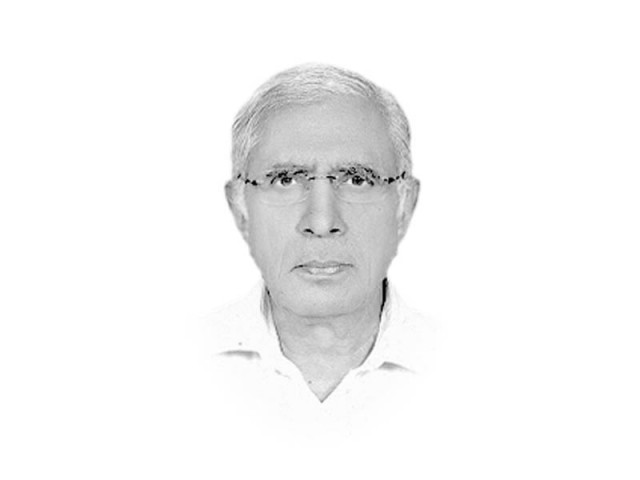Both are right
Increasing the flow of credit is disastrously counterproductive when the fundamental problem is too much debt

The writer served as Executive Editor of The Express Tribune from 2009 to 2014
The article in question needs to be read first hand to comprehend what is being attempted to be conveyed by the author. So, one would not like to repeat here what Dr Zaman, the vice-chancellor of the Pakistan Institute of Development Economics, has propounded in his piece. But one could provide some kind of context to the good doctor’s thesis by discussing the achievements of the two researchers he has quoted. Atif Mian is a Pakistani-American. In its September 2014 edition of Finance and Development, a quarterly publication of the IMF, the Washington-based lender named 39-year-old Mian, professor of economics at Princeton University, among 25 economists under 45 “who are shaping the way we think about the global economy”. Mian recently co-authored with Amir Sufi a book titled House of Debt, which has received critical acclaim from academia, policymakers and the general public. Nobel laureate Paul Krugman, arguably the most influential economist alive, has called Mian a leading expert on the subject of debt.
In the book Mian and Sufi argue strongly with actual data that current policy is too heavily biased towards protecting banks and creditors. Increasing the flow of credit, they show, is disastrously counterproductive when the fundamental problem is too much debt. Thoroughly grounded in compelling economic evidence, House of Debt offers convincing answers to some of the most important questions facing the modern economy today: why do severe recessions happen? Could we have prevented the Great Recession and its consequences? And what actions are needed to prevent such crises going forward?
Dr Zaman has also referred to Ellen Brown’s book, The Public Bank Solution: From Austerity to Prosperity. This book trashes the way banking is generally being done currently but admits as well that we cannot do without banking. So, she has a solution: nearly all money today is simply bank credit. Economies run on it, and it is created when banks make loans. The main flaw in the current model is that private profiteers have acquired control of the credit spigots. They can cut off the flow, direct it to their cronies, and manipulate it for personal gain at the expense of the producing economy. The benefits of bank credit can be maintained while eliminating these flaws, through a system of banks which could operate as public utilities, serve the public interest and return their profits to the public. The book looks at the public bank alternative and shows with examples from around the world and through history that it works admirably well, providing the key to sustained high performance for the economy and well-being for the people.
According to Dr Zaman, decades of experience with what is commonly known as the Washington Consensus and codified as privatisation, liberalisation and stabilisation, has shown that they produce increasing inequality but do not produce growth. He says that alternative models for successful development are available. Calling the example of Brazil as the most spectacular, he says after being elected president in 2003, Lula da Silva deficit-financed programmes of social support and investment creating progress and prosperity. Under him, Brazil went from being the most heavily indebted country in the world to the eighth largest economy, and 20 million people rose out of poverty.
Published in The Express Tribune, March 18th, 2015.
Like Opinion & Editorial on Facebook, follow @ETOpEd on Twitter to receive all updates on all our daily pieces.


















COMMENTS
Comments are moderated and generally will be posted if they are on-topic and not abusive.
For more information, please see our Comments FAQ